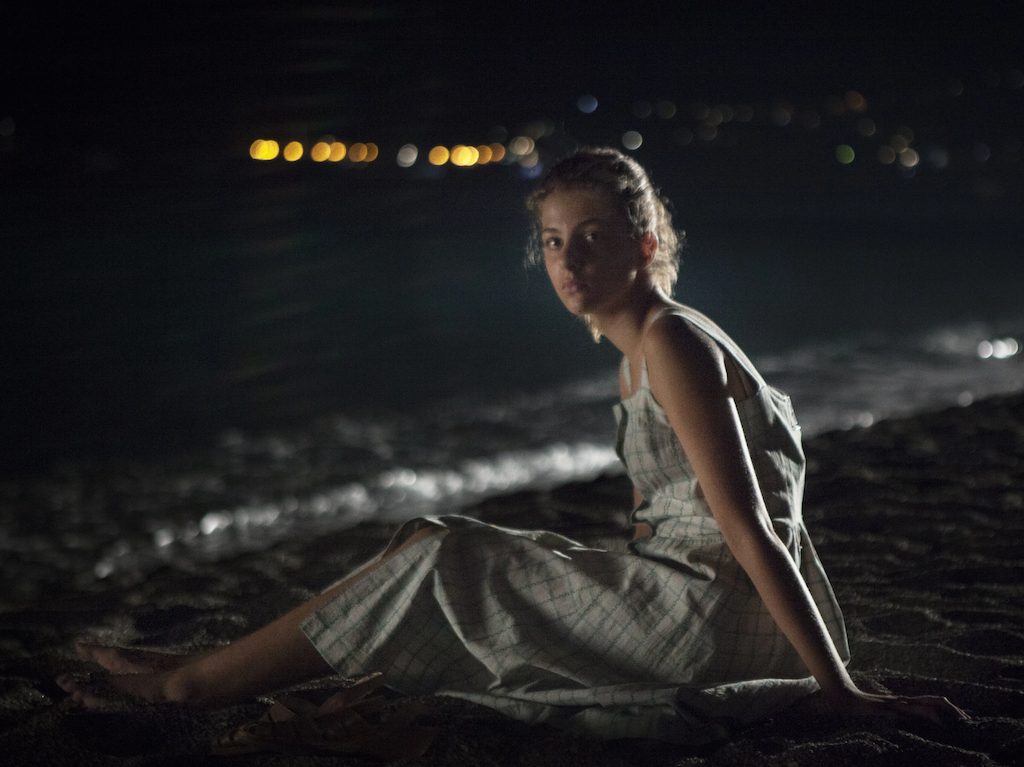Quick summary:
Elena enjoys a few blissful weeks in Ischia before the Sarratore family arrives at Nella's (Nunzia Schiano) and fucks up the vibe. At first, Nino is missing and Marisa (Miriam D'Angelo) reveals that he plans the summer so that he and his father, Donato, see as little of each other as possible. Elena doesn't understand this hatred considering everyone, including her, loves Donato and laments his return to Naples. Nino isn't even half as charming as his father and, if left to his own devices, would happily spend the summer smoking cigarettes and reading novels in silence. When Elena finally receives a letter back from Lila after writing to her multiple times with no reply, she decides to cut her trip short to assist with the escalating Marcello fiasco. As a parting gift, Donato sexually assaults her and she leaves the island in a flurry of disgust and confusion.
Corresponding book chapters:
"The Island" goes from Chapters 30-35. This section is a temporary reprieve from the dirty, oppressive neighborhood until Donato's abuse turns Ischia into yet another hell hole where men ruin everything.
Notable choice (complimentary):
I was nervous about the molestation scene for obvious reasons, but it's handled with care. The camera primarily focuses on Elena's face, emphasizing the shock and horror of being violated by someone she previously trusted. All of the most heinous actions happen in closeup: Donato's hand grazing her thigh, his lips roving around her closed mouth, his wedding ring-adorned hand groping her breast. At no point is she responsive to any of his advances and while she never says anything, her silent tears speak volumes.
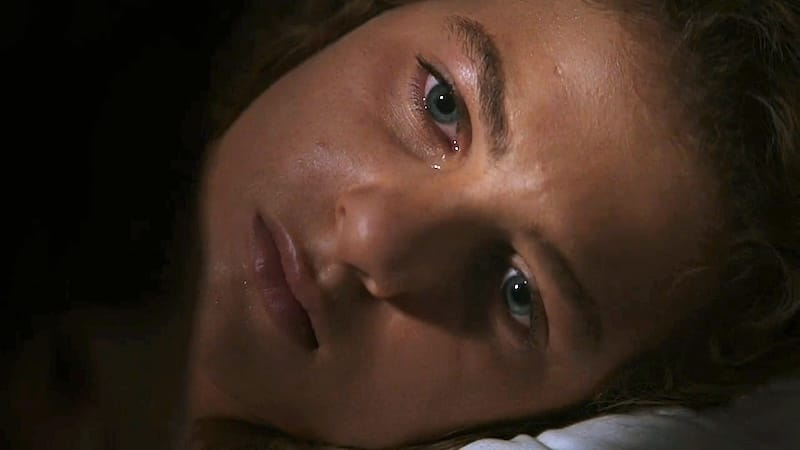
In the book, Elena lies awake, processing the trauma once Donato leaves: "I felt an uncontainable hatred for Donato Sarratore and disgust for myself, for the pleasure that lingered in my body. However unlikely it may seem today, as long as I could remember until that night I had never given myself pleasure, I didn't know about it, to feel it surprised me." A director like Catherine Breillat would have shown Elena masturbating, determined to shove the dichotomy between pleasure and pain down our throats; Saverio takes a different approach by saving Elena's admission for a voiceover as the ferry home departs Ischia. It's a disturbing capper on the vacation, illustrating why Elena (or anyone who experiences assault) might go fifty years without ever truly acknowledging it.
Notable choice (derogatory):
Donato's pompous idiocy and blatant insecurities are more obvious in the novel. Elena notes, "He expressed himself more in Italian than in dialect and tended somewhat insistently, especially with me, to come out with convoluted sentences and unusual phrasings." When he waterboards everyone with his Roma article, the sentences are "high-flown" and full of assertions that Elena would have argued with had someone uttered them in class. Despite her admiration, she's not impervious to his dipshittery; I wish TV Elena had retained some of this skepticism because it shows that even when she's being charmed, her ability to think critically is still intact.
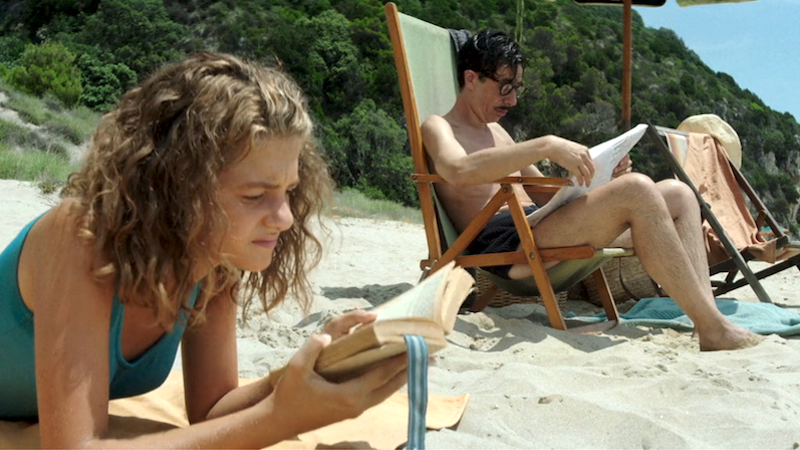
Thoughts:
Nothing is more exhilarating than being in a new place, away from family for the first time. I remember going to Washington, D.C. for Presidential Classroom when I was one year older than Elena (17). It was my first time on a plane and my parents, who haven't flown since 1988, were incredibly nervous but I refused to let their fear dampen my excitement. It was empowering to realize that I wasn't beholden to their own limitations. Elena experiences a similar period of freedom in Ischia. Once her chores for Nella are complete, she can do whatever she wants with her days. No one is around to criticize her for merely existing; in fact, everyone she encounters remarks upon her geniality. Elena thrives in this environment... until the Sarratores roll up.
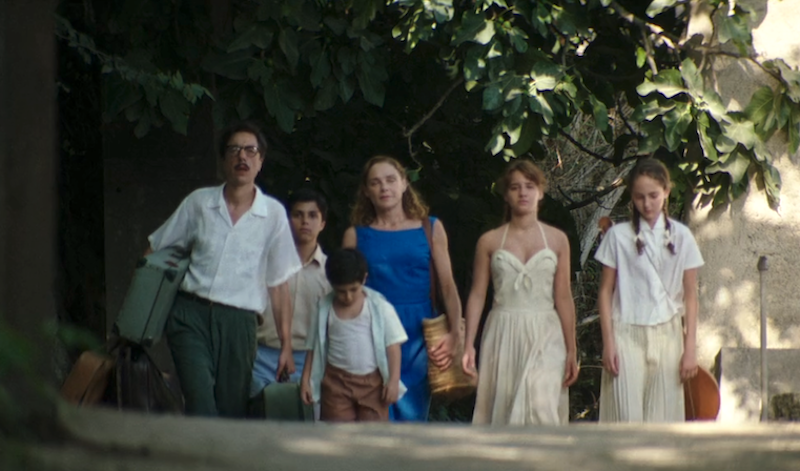
Nino is conspicuously absent, which Elena later learns is because he can't stand being around his father; this mystifies her since everyone else is obsessed with Donato. The only way I can explain their misguided adoration is by reminding myself how low the bar was for men during this era. When Elena was a child and the Sarratores still lived in the neighborhood, she remembers the men, including her own father, referring to Donato as "womanish" due to his interest in poetry and domestic labor. These qualities make him appear different than other men, safer. He's like Ted Bundy with his arm in a sling, asking women for help while calculating the perfect time to strike.
When Donato returns to work, Elena is bummed until Nino arrives. Initially, the differences between father and son couldn't be more pronounced. Nino doesn't give a shit about charming or helping anyone. He walks through Nella's kitchen with an air of indifference, barely acknowledging Elena's presence. If not for his gentle behavior that night (closing Elena's book when he thinks she's asleep), she might have gotten over his lame ass. In every one of their interactions, he does just enough to slightly offset his douchiness and keep her invested. This tiny crumb of affection prevents her from retching when she sees his pile of beach cigarettes. It keeps her from throwing sand into his mouth when he starts monologuing about "The Brothers Karamazov."
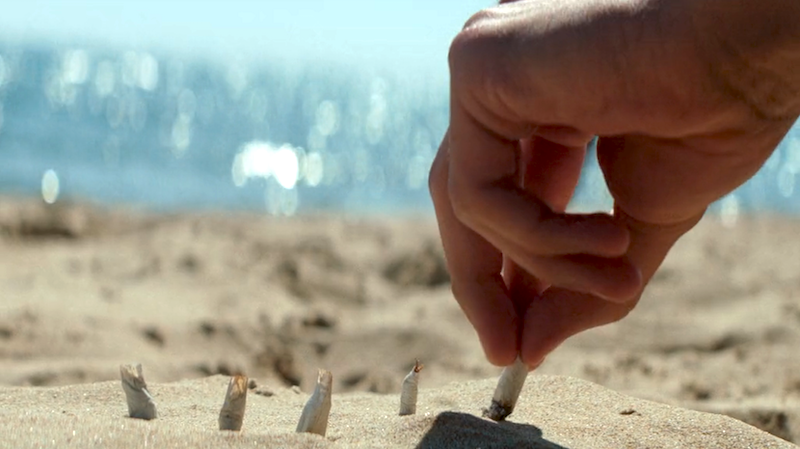
Eventually, Nino and Donato are forced to interact when their time in Ischia briefly overlaps. While Nino is never openly hostile or even impolite, he's visibly triggered by everything Donato does, especially if it involves praise or kindness directed toward him. During one of Nino and Elena's beach conversations, he calls his father a hypocrite, telling her that he routinely cheats on Lidia (Fabrizia Sacchi) and uses his charisma to trick everyone into forgiveness. Nino likely sees through Donato's ploys because they remind him of his own. He hasn't yet fully come into his fuckboy power, but he certainly understands how to manipulate girls whether he's cognizant of it or not.
Over the summer, Nino keeps Elena in a perpetual state of unease. He reminisces about their childhood, confessing, "I liked you a lot. I thought we'd get engaged
and be together forever" before immediately adding, "All three of us, me, you and [Lila]." He never asks Elena any questions about herself or engages with her in any meaningful way. He reels her in with kindness and then follows it up with rejection. By kissing her before his departure, Nino ensures she'll spend the rest of the summer pining for him. If we could flashback to Donato at age seventeen, I'm confident he'd be playing the same games. Like father, like son, although as far as we know, Nino never sexually assaults anyone, so... yay.
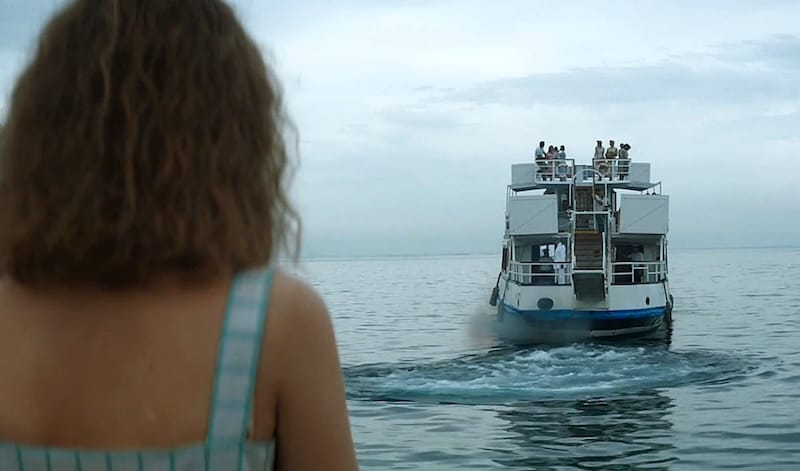
Elena has already had quite the summer by the time Nino leaves, but shit really hits the fan on her fifteenth birthday. After weeks of writing to Lila and never hearing back, she finally receives a letter full of troubling news. Of course, her first thought upon reading it is that Lila's writing prowess makes her feel like a fraud. No matter what else is happening in the world, Elena's insecurities always take center stage. As she recounts the contents of the letter from Nella's terrace, the dank, crowded neighborhood comes into focus. Marcello has wormed his way even further into the Cerullo family by presenting them with a TV and toasting his engagement to Lila, complete with heirloom engagement ring, before she's agreed to anything. The scariest moment comes when, away from the family, Lila rejects the ring and Marcello slams her against the wall, his hands around her throat. The violence that has been simmering beneath the surface is now out in the open.
One of the smartest decisions this episode makes is visually linking the trauma that Elena and Lila experience using the image of the copper pot. After Elena tells everyone that she needs to leave the island early to go help a friend, the scene jumps to the Cerullo kitchen. As the camera tracks in on Lila from behind, there's a loud bang, followed by a shot of a copper pot hanging on the wall with a large hole in it. The copper pot, exploding seemingly out of nowhere, is a physical manifestation of the destruction to come. A person under great pressure can only resist change for so long. In her letter, Lila uses this copper pot as a symbol, a premonition of her future if she succumbs to Marcello's advances.
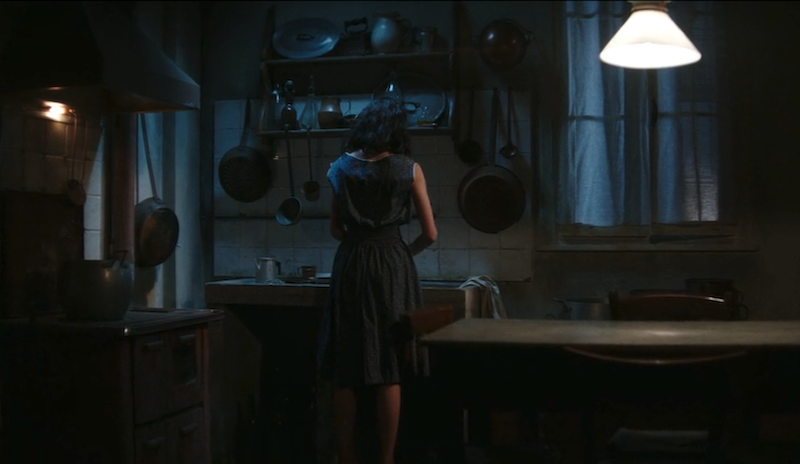
When the narrative returns to Ischia, the first image is of an intact copper pot hanging on Nella's kitchen wall. Elena's summer has been easy, full of lounging on the beach and obsessing over a low stakes romance. She's in bed, kissing Nino's bookmark and thinking of Lila, when Donato slithers into the room and forever changes her perception of that summer. The following day, Elena leaves the island. In her letter, Lila "hoped [Elena] would stay in Ischia with kind Signora Nella and never return to the neighborhood again." Unfortunately, Ischia offers no protection from misogynistic abuse. No matter where the girls are, the rione's cruelty has a way of finding them and eradicating all traces of joy.
Random observations:
- Not only does Nella radiate joy and warmth, she's also emotionally intuitive. She senses Elena's insecurities and encourages her to overcome them in a way that her own parents do not. It bums me out to think of her fucking Donato Sarratore, but... they probably fucked 🤷🏼♀️
- Donato thinks he's the smartest man alive, yet all he reads is fascist propaganda. Imagine how insufferable he'd be on social media, cramming his shitty opinions down everyone's throats.
- Elena swimming for the first time in the Tyrrhenian Sea = her Uncle Yanco moment. Donato deserves to be lit on fire for tainting her first taste of independence.
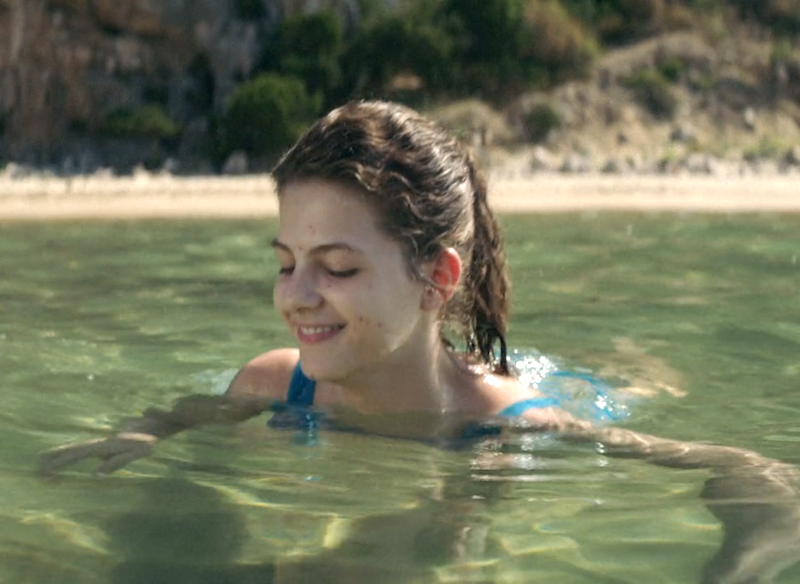
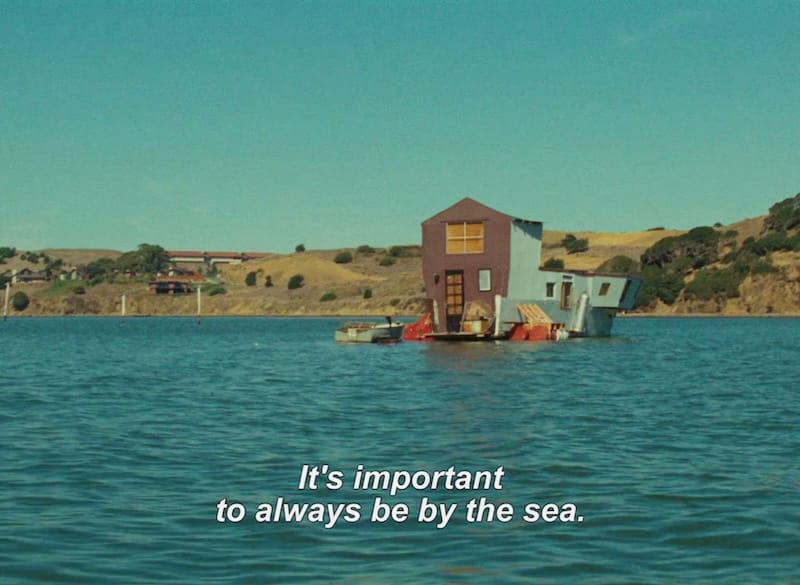
- The first thing the Cerullos watch on their fancy new TV is a S6 episode of "Un, due, tre," a satirical sketch comedy show hosted by Ugo Tognazzi and Raimondo Vianello. Despite its popularity, the show was canceled later that summer (1959) after parodying Giovanni Gronchi's whoopsie Daisy during a meeting with France's president, Charles de Gaulle.
- Books mentioned in this episode: "The Brothers Karamazov" (Dostoevsky, 1880), "Bel-Ami" (de Maupassant, 1885), and "Great Expectations" (Dickens, 1861). All of these novels should appeal to anyone who likes Ferrante's writing.
- Nella's terrace is the stuff of dreams, especially her tiled table. I'd happily sleep on a lumpy pull-out mattress if it meant I got to write with a view of the ocean every day.
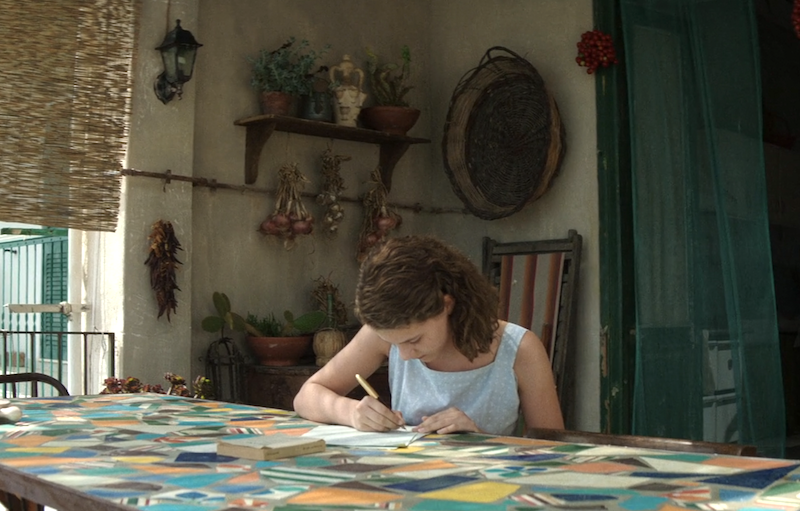
- Imagine what "Project Runway"-era Michael Kors would say about Elena's bathing suit. My money's on "The crotch is just every woman's nightmare."
- When Donato compliments Elena the first night over dinner, staring at her for several beats too long, Lidia gives him this knowing look:
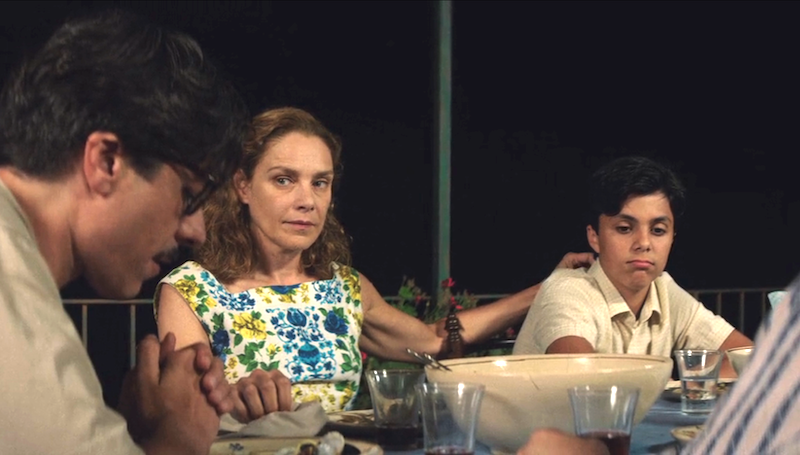
- For deeper analysis on the copper pot, read this.

